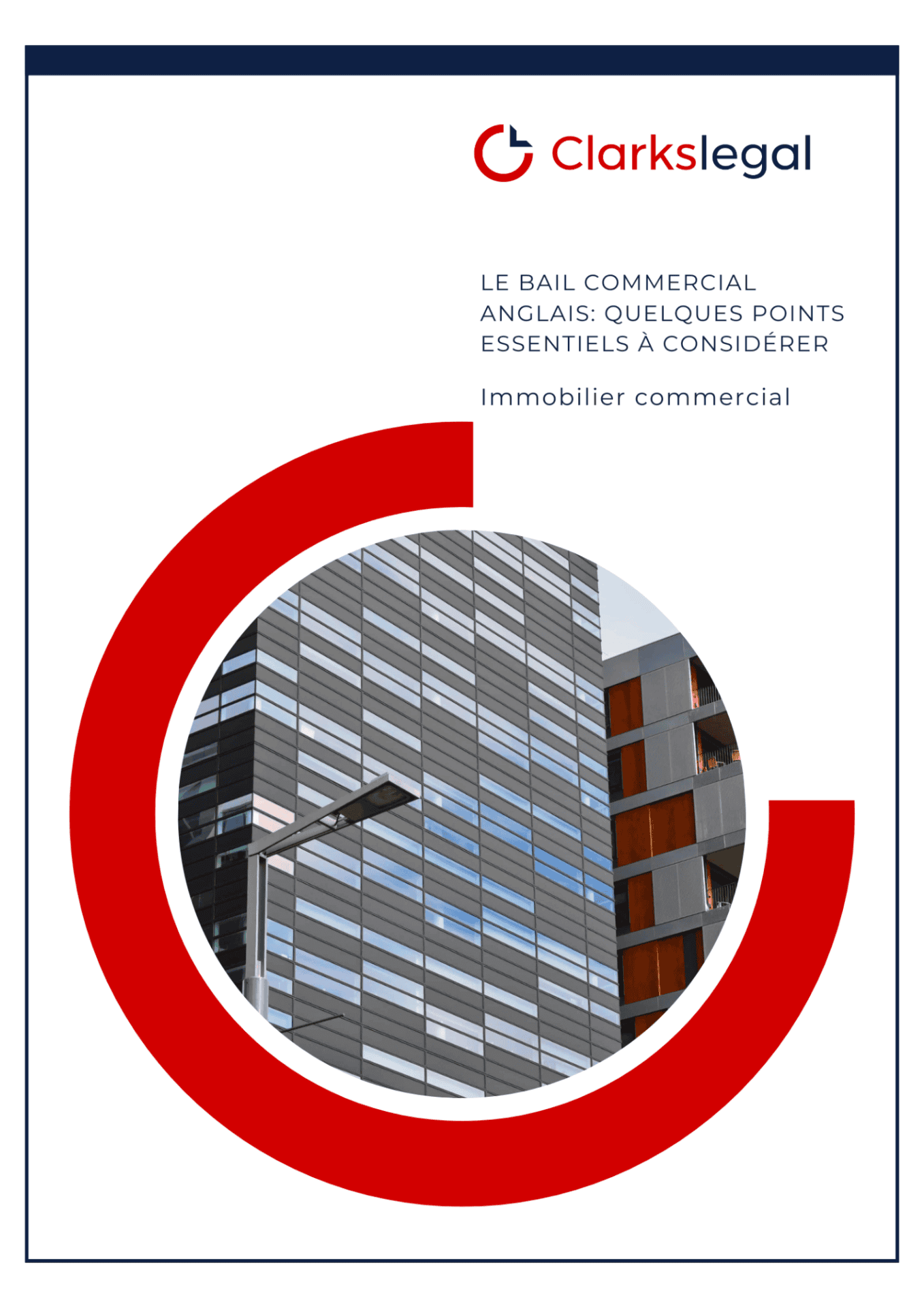A commercial lease in England: a few essential points to consider
- 03 November 2025
- Commercial Real Estate
1
Typically, commercial leases in England are short, lasting between 5 to 10 years, at a market rent and with an upwards only rent review. Unlike in France, the duration of the lease term is more flexible.
However, regardless of the length of the lease or the level of rent, the extent of the space rented or rights affecting the property, here are five essential clauses to consider:
Typically, commercial leases in England are short, lasting between 5 to 10 years, at a market rent and with an upwards only rent review.
It is essential that both the landlord and the tenant are well-advised by a surveyor during lease negotiations.
A surveyor acting on behalf of the landlord has no legal obligation to offer terms that are fair or balanced. Therefore, it is recommended that the tenant appoints their own surveyor.
The points outlined above are neither final nor exhaustive. Negotiations between the landlord and tenant will depend on the nature and type of the property, the lease term, the tenant’s specific needs, the market and each party’s bargaining power.
A solicitor will then incorporate the agreed terms into a draft lease and further negotiate them on behalf of their client. It is essential not to view and negotiate each clause in isolation, but rather to consider the intentions of the parties, as well as the impact of the drafting, in order to achieve a contractual balance that is satisfactory to both parties.
Keep up to date with the latest tips, analysis and upcoming events by our legal experts, direct to your inbox.
Disclaimer
This information is for guidance purposes only and should not be regarded as a substitute for taking legal advice. Please refer to the full General Notices on our website.

Typiquement, les baux commerciaux en Angleterre sont de court terme, d’une durée de 5 ou 10 ans, avec un loyer de marché et des ajustements du loyer périodiques en fonction de l’inflation ou d’autres facteurs. Contrairement à la France, les régimes de durée sont plus souples.
Cependant, quelque soit la durée du bail ou le loyer, l’étendue des locaux loués, les droits ou éventuelles servitudes, voici 5 clauses essentielles à prendre en considération.